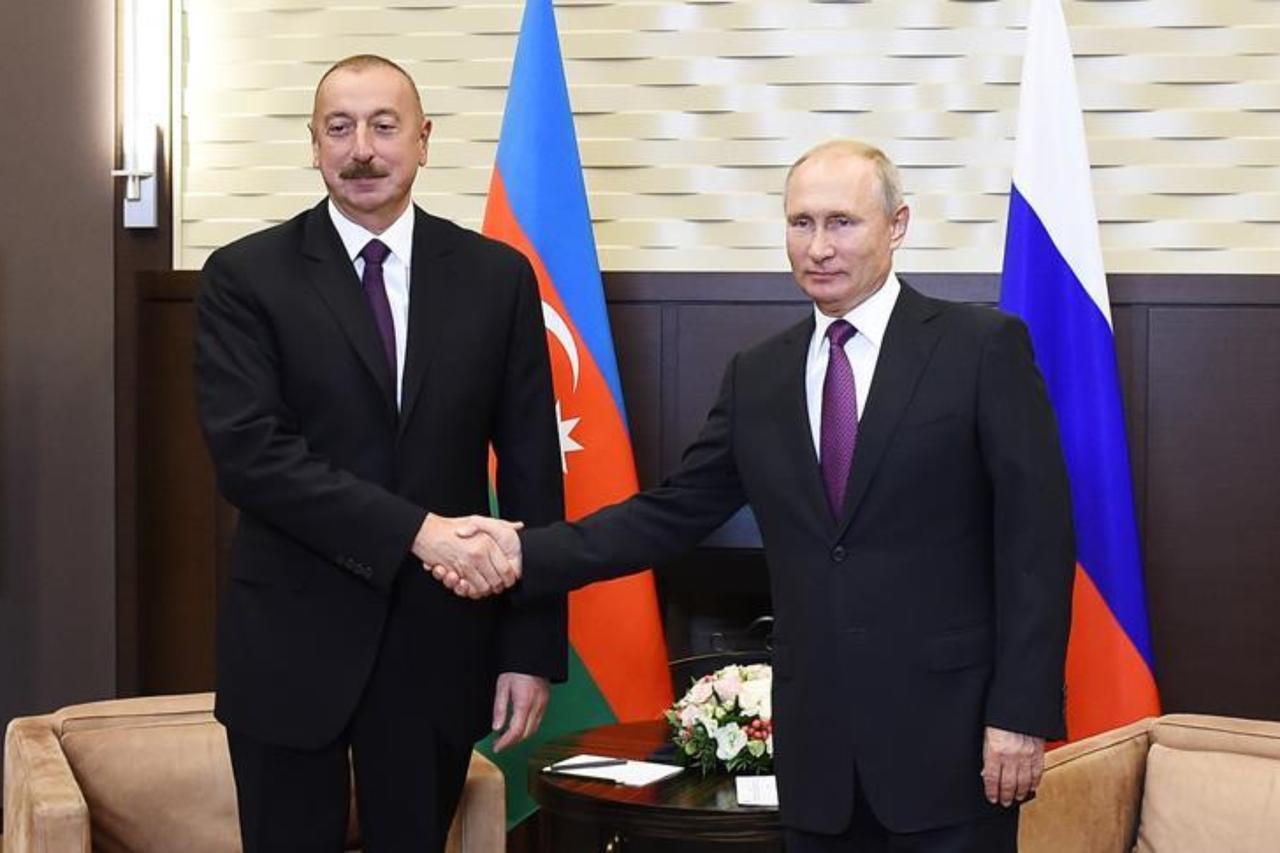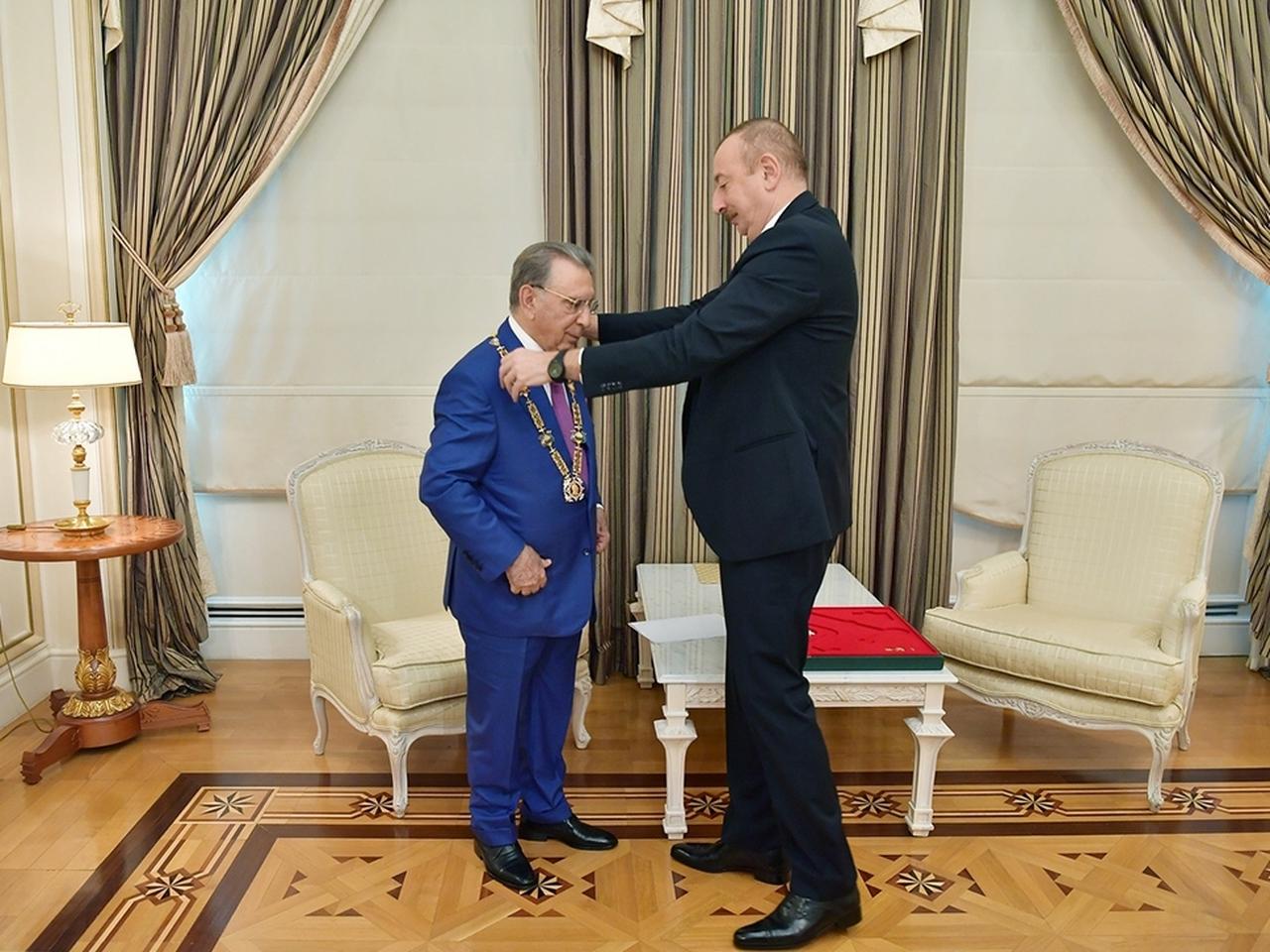
A purported pro-Russian coup plot aimed at ousting Azerbaijani President Ilham Aliyev and installing a “State Council” led by former Presidential Chief of Staff Ramiz Mehdiyev was exposed, according to multiple media reports.
Mehdiyev, a longtime power broker with Soviet-era roots, widely regarded as a pivotal figure inside the Aliyev inner circle, is alleged to have approached Moscow earlier this year with a plan to seize power and form a transitional government under his leadership, Azerbaijani media outlet APA reported on Oct. 16.
The plot reportedly came to light when Kremlin officials handed Aliyev detailed intelligence about Mehdiyev’s proposal during a bilateral meeting in Dushanbe. The information included a list of individuals allegedly tied to the proposed council, reportedly supplied to Aliyev by Russian President Vladimir Putin.
A subsequent investigation by Azerbaijan’s State Security Service led to Mehdiyev’s arrest on charges of treason and “acts aimed at seizing state power.” He was placed under house arrest pending further inquiry.
Azerbaijani officials have not publicly confirmed Moscow’s role in revealing the plot, though local media celebrated the development as a victory for Aliyev.

Aliyev, who led Azerbaijan to victory over Armenia in the 2020 Second Karabakh War, has consolidated his position as the most powerful leader in the South Caucasus. He strengthened relations with Türkiye, Israel, and Western and Central Asian partners, positioning Azerbaijan as a key regional energy hub amid the war in Ukraine.
Azerbaijan is marking the 34th anniversary of its restored independence. The country first declared independence on May 28, 1918, under the National Council chaired by Mehmet Emin Rasulzade, before being occupied by the Soviet Union two years later. It regained independence on Oct. 18, 1991.
Over the past 34 years, Azerbaijan has modernized its economy, bolstered its military, and deepened its alliance with Türkiye, elevating relations to strategic partnership levels through energy and infrastructure projects.
In the early 1990s, taking advantage of political instability in Baku, Armenian forces occupied Nagorno-Karabakh and surrounding provinces, forcing about 1 million Azerbaijanis to flee their homes.
After years of failed negotiations under the OSCE Minsk Group, Azerbaijan launched a counteroffensive on Sept. 27, 2020, to reclaim occupied territories. The 44-day conflict, known in Azerbaijan as the “Homeland War,” ended with Armenia’s capitulation on Nov. 10, 2020.
The Azerbaijani army liberated five cities, four towns, and 286 villages. Under the subsequent agreement, Armenian forces withdrew from the provinces of Kalbajar, Lachin, and Aghdam.
In September 2023, Azerbaijan carried out a “counterterrorism operation” in Karabakh, ending the presence of illegal armed groups and restoring full control over its territory.
Peace negotiations with Armenia have since gained momentum. During a summit in Washington, DC, both sides initialed a peace agreement seen as a key step toward lasting stability.
Azerbaijan’s modern economic transformation began with the “Contract of the Century,” signed by late President Heydar Aliyev with 11 companies from seven countries, enabling the exploitation of the Azeri-Chirag-Guneshli oil field. The deal paved the way for the Baku-Tbilisi-Ceyhan oil pipeline.
Today, Azerbaijan exports oil and petroleum products to more than 30 countries and natural gas to 14 nations through the Southern Gas Corridor—comprising the South Caucasus Pipeline, the Trans-Anatolian Natural Gas Pipeline (TANAP), and the Trans-Adriatic Pipeline (TAP).
Türkiye was the first country to recognize Azerbaijan’s independence. The slogan “one nation, two states,” coined by Heydar Aliyev, remains the foundation of their partnership.
The two countries have deepened cooperation through projects such as the Baku-Tbilisi-Ceyhan oil pipeline, TANAP, and the Baku-Tbilisi-Kars railway. During the 2020 war, Türkiye provided strong political and moral backing to Azerbaijan.
In 2021, Presidents Recep Tayyip Erdogan and Aliyev signed the Shusha Declaration, formalizing their strategic alliance.
Since independence, Azerbaijan has maintained good relations with neighboring states and played an active role in international organizations, including the Organization of Turkic States, the Non-Aligned Movement, the Organization of Islamic Cooperation, and the OSCE.
Azerbaijan held a non-permanent seat on the U.N. Security Council from 2012 to 2013 and chaired the Non-Aligned Movement from 2019 to 2023.
In November 2024, Baku hosted the 29th U.N. Climate Change Conference (COP29), marking another milestone in the country’s growing global presence.